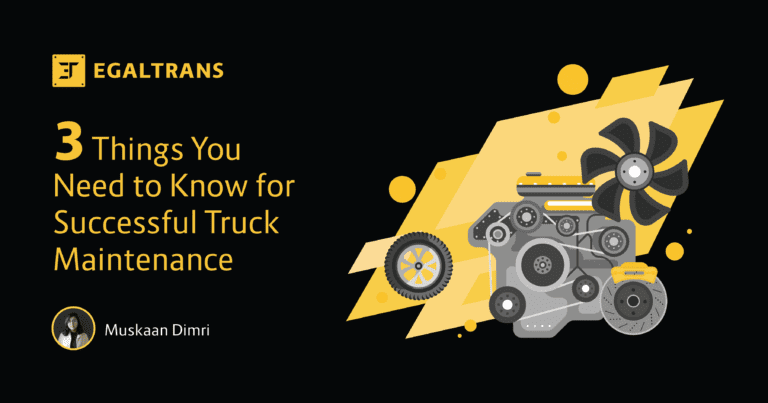As technology continues to advance, the question of whether India will ever adopt self-driven trucks has become a topic of significant debate. While autonomous vehicles are making headlines in the West, driven by the need for efficiency and safety, India’s unique socio-economic landscape presents both challenges and opportunities in this realm. This blog delves into the reasons behind the emergence of self-driven trucks in Western countries, explores the surplus of human labor in India, emphasizes the need for driver training and upskilling, and discusses the risks associated with introducing self-driven trucks in the Indian context.
The Rise of Self-Driven Trucks in Western Countries
Self-driven trucks have emerged as a solution to several challenges faced by the transportation industry in Western countries. One of the primary drivers behind this technological shift is the acute shortage of truck drivers. In regions like the United States and Europe, the trucking industry has been grappling with a declining workforce. The aging population of drivers, coupled with the younger generation’s reluctance to enter the profession, has created a void that automation seeks to fill.
Moreover, safety concerns have been a significant motivator for the development of autonomous trucks. Human error is a leading cause of road accidents, and self-driven vehicles, equipped with advanced sensors and artificial intelligence, have the potential to reduce accidents caused by fatigue, distraction, and other human factors. Additionally, self-driven trucks promise increased efficiency in logistics by optimizing routes, reducing fuel consumption, and minimizing downtime.
The Surplus of Human Labor in India: A Barrier to Automation
India, in stark contrast to the West, has a surplus of human labor. The trucking industry is a major employer, providing livelihoods to millions of drivers and their families. In a country where unemployment and underemployment are significant issues, the introduction of self-driven trucks could exacerbate these problems by displacing a large segment of the workforce.
Unlike Western countries, where the driver shortage is a pressing concern, India does not face the same immediate need for automation in the trucking sector. The country’s vast and diverse population ensures a steady supply of drivers willing to work in the industry. Therefore, the adoption of self-driven trucks in India may not be a priority, especially when there are abundant human resources available to meet the industry’s demands.
The Importance of Training and Upskilling Drivers
Rather than focusing on automation, India should prioritize the training and upskilling of its truck drivers. The trucking industry in India is often plagued by issues such as poor road safety, inadequate infrastructure, and a lack of standardized training for drivers. By investing in driver education and skill development, the country can significantly improve the safety and efficiency of its transportation sector.
Training programs should focus on modern driving techniques, vehicle maintenance, and the use of technology to assist drivers in their tasks. For instance, equipping drivers with knowledge of GPS systems, telematics, and other digital tools can enhance their productivity and reduce the likelihood of accidents. Upskilling drivers to operate and maintain advanced vehicles can also ensure that they remain relevant in an industry that is gradually embracing technology.
Moreover, improving working conditions for truck drivers, including better pay, rest facilities, and health benefits, can make the profession more attractive. By addressing these issues, India can create a more resilient and sustainable trucking industry without resorting to automation.
Risks of Introducing Self-Driven Trucks in India
The introduction of self-driven trucks in India comes with a host of risks and challenges that cannot be ignored. The country’s road infrastructure, while improving, is still far from the standards required for the safe operation of autonomous vehicles. Poorly maintained roads, unpredictable traffic patterns, and the prevalence of unregulated driving practices pose significant challenges to the implementation of self-driven trucks.
Furthermore, the legal and regulatory framework in India is not yet equipped to handle the complexities of autonomous vehicle operation. Issues such as liability in case of accidents, insurance, and data privacy need to be addressed before self-driven trucks can be deployed on Indian roads. The potential for hacking and cyber-attacks on autonomous vehicles also raises concerns about the security of such systems.
Another critical risk is the social impact of self-driven trucks. As mentioned earlier, the displacement of drivers could lead to widespread unemployment, particularly in rural areas where trucking jobs are a primary source of income. This could exacerbate social inequalities and lead to unrest, making the transition to autonomous vehicles a contentious issue.
The Road Ahead for India
While self-driven trucks offer promising solutions to some of the challenges faced by the global transportation industry, their relevance and feasibility in India remain questionable. The country’s surplus of human labor, coupled with the unique challenges posed by its infrastructure and regulatory environment, suggests that the focus should be on enhancing the capabilities of human drivers rather than replacing them with machines.
India’s trucking industry stands at a crossroads, where the choice between automation and human-driven progress will shape its future. By prioritizing training, upskilling, and improving working conditions for drivers, India can build a more robust and sustainable transportation sector that not only meets the demands of a growing economy but also safeguards the livelihoods of millions of workers. The journey towards self-driven trucks in India may be a distant one, but the path towards a skilled and empowered workforce is within reach.






